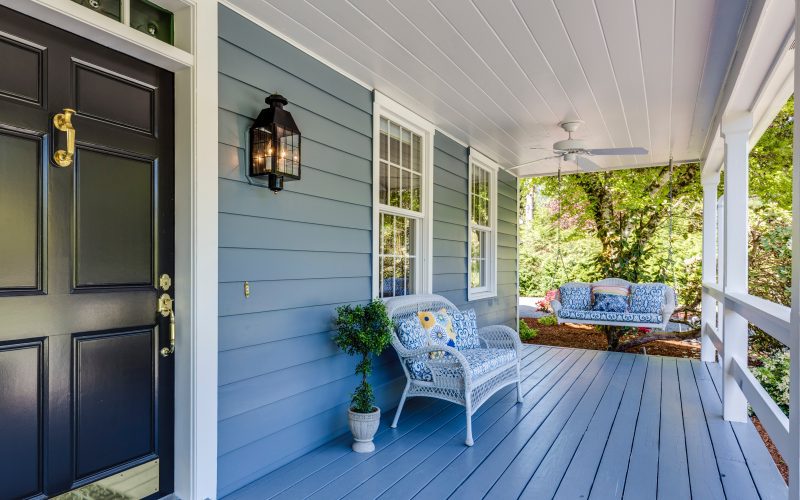Introduction
Purchasing a home is one of the biggest decisions you can make. It’s both an exciting time and a daunting one, since there are so many factors to consider. You need to think about location, budget, design style, and more. And it can all be overwhelming! But don’t worry—we’ve got you covered. This blog post will serve as your guide to finding and purchasing the perfect home within your budget. We’ll explore everything from understanding the market value of homes in different areas to tips for negotiating a good deal and getting that house of your dreams without breaking the bank. So read on for an easy-to-follow guide on how to buy a home on a budget!
How Much Can You Afford?
It’s no secret that buying a home is a huge financial investment. In order to find and purchase your dream home within budget, you need to do some careful planning and research.
First, you need to figure out how much you can afford to spend on a home. This includes taking into account your current income, debts, and any other financial obligations you have. Once you have a good idea of your budget, you can start looking for homes that fit your price range.
There are a number of online tools that can help you search for homes in your price range. Zillow’s Home Affordability Calculator is a great place to start. This tool allows you to input your monthly income, debts, and other financial obligations to see how much house you can afford.
Once you’ve found a few homes that fit your budget, it’s time to start thinking about what kind of home you want. What size do you need? What type of style do you prefer? How many bedrooms and bathrooms do you want?Answering these questions will help narrow down your search even further and make it easier to find your dream home within budget.
Finding the Right Neighborhood
There’s more to finding the right home than just finding the right property. You also need to consider the neighborhood and make sure it’s a good fit for you and your family. Here are a few tips for finding the right neighborhood:
1. Do your research. Before you start house hunting, take some time to research different neighborhoods. Consider things like the crime rate, schools, commute times, and amenities.
2. Talk to locals. Once you’ve narrowed down your search area, talk to people who live there. They can give you insight into what it’s really like to live in that neighborhood.
3. Drive around. Get a feel for the neighborhood by driving around at different times of day and night. This will help you see things like traffic patterns and how safe it feels.
4. Walk or bike around. Once you’ve found a few neighborhoods you like, spend some time walking or biking around them so you can get a better sense of what they’re really like.
5. Check out public transportation options. If you’re going to be relying on public transportation, make sure the neighborhood has good options for getting around town.
6 . Consider your budget . Don’t forget to factor in things like homeowners association dues when considering your budget for a new home . Otherwise , you could end up in a neighborhood that’s out of your price range . 7 Look beyond the house . When you’re touring homes , don’t
The Home Buying Process
The home buying process can be a daunting task, especially for first-time buyers. With so many things to consider – from budget and financing to finding the right property – it’s easy to get overwhelmed.
But don’t worry, we’re here to help. In this guide, we’ll walk you through the entire home buying process, step by step. We’ll cover everything from how to save for a down payment to what to look for in a property, so you can make sure you find and purchase your dream home within budget.
Ready to get started? Let’s jump in.
Hiring a Buyers Agent
If you’re looking to purchase a home, you may be wondering if you need to hire a buyers agent. The answer is not always clear cut, as there are pros and cons to both options. Here’s a rundown of what you need to know about hiring a buyers agent:
The Pros:
-A buyers agent is knowledgeable about the real estate market and can help you find the right home within your budget.
-They will handle all of the paperwork and negotiations for you, so you can focus on finding your dream home.
-A buyers agent is unbiased and will have your best interests in mind when it comes to making an offer on a home.
The Cons:
-You will have to pay the buyers agent a commission, which is typically 2-3% of the purchase price of the home.
-If you’re working with a limited budget, hiring a buyers agent may not be an option.
-You may be able to find homes on your own without the help of an agent.
Making an Offer and Negotiating
Assuming you’ve found your dream home and are ready to make an offer, what next? The following is a step-by-step guide on how to negotiate with the seller to come to an agreement on price, as well as other important factors in the sale.
1. Get your finances in order
Before making an offer, you’ll need to get pre-approved for a mortgage and know exactly how much you can afford to spend. This will help ensure that you don’t overspend and can avoid getting into a bidding war with other buyers.
2. Do your research
It’s important to be aware of recent comparable sales in the neighbourhood so you have an idea of what the home is worth. This information will be helpful when it comes time to negotiating with the seller.
3. Determine your bottom line
Before making an offer, decide on the absolute maximum amount you’re willing to pay for the property. This number should take into account any repairs or renovations that may need to be made after purchase. Once you have your bottom line, stick to it during negotiations.
4. Make your initial offer
The initial offer is usually lower than the asking price, so there’s room for negotiation. If you have done your research and know what similar properties have sold for, start there. It’s also important to be reasonable – if your offer is
The Home Inspection
A home inspection is one of the most crucial steps in purchasing a home. It is important to find a qualified inspector who will look for any potential problems with the home. The inspection should include a thorough examination of the interior and exterior of the home, as well as any outbuildings or other structures on the property. The inspector should also check for any signs of pests or other damage, and perform tests to determine the condition of the home’s electrical, plumbing, and HVAC systems.
Closing on Your Home
Closing on your home is one of the most important steps in the home buying process. It’s also one of the most stressful. But if you’re prepared and you know what to expect, closing on your home can be a smooth and easy process.
Here are a few things you need to do when closing on your home:
1. Choose a closing date: This is the date when you will officially sign the paperwork and become the new owner of the property. Closing dates are typically 30-60 days after the offer is accepted, but this can vary depending on the situation.
2. Get a loan: Unless you’re paying cash for the property, you’ll need to get a loan from a bank or other lender. Getting pre-approved for a loan before you start looking at homes will make the process easier and help you know how much house you can afford.
3. Hire an inspector: Once you’ve found the perfect home, it’s important to have it inspected by a professional before you buy it. An inspection will help identify any potential problems with the property that could end up costing you money down the road.
4. Order a title search: A title search is an important step in closing on your home because it ensures that there are no liens or other claims against the property that could cause problems down the road.
5. Get homeowners insurance: Most lenders require borrowers to have homeowners insurance in place before they close
Conclusion
Purchasing a home is one of the biggest decisions you will make in life, so it’s important to be well-informed and prepared. With this guide, we hope that you now have a better understanding of how to find and purchase your dream home within budget. From researching potential homes online, getting pre-approved for a mortgage loan and making an offer through closing on the house, there are many steps involved in finding your perfect home. We wish you luck on your journey as you embark on this exciting new chapter!












